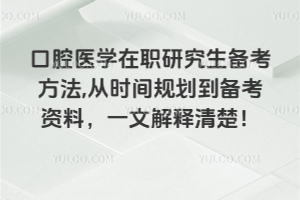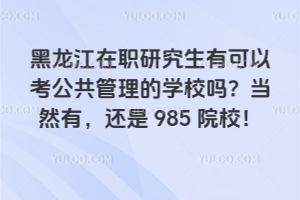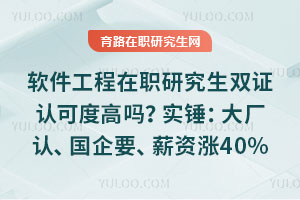- 微信公眾號(hào)

政策解讀
- 微信小程序

快速擇校

政策解讀

快速擇校
Passage 5
The world is going through the biggest wave of mergers and acquisitions ever witnessed. The process sweeps from hyperactive America to Europe and reaches the emerging countries with unsurpassed might. Many in these countries are looking at this process and worrying: “Won’t the wave of business concentration turn into an uncontrollable anti-competitive force?”
There’s no question that the big are getting bigger and more powerful. Multinational corporations accounted for less than 20% of international trade in 1982. Today the figure is more than 25% and growing rapidly. International affiliates account for a fast-growing segment of production in economies that open up and welcome foreign investment. In Argentina, for instance, after the reforms of the early 1990s, multinationals went from 43% to almost 70% of the industrial production of the 200 largest firms. This phenomenon has created serious concerns over the role of smaller economic firms, of national businessmen and over the ultimate stability of the world economy.
I believe that the most important forces behind the massive M&A wave are the same that underlie the globalization process: falling transportation and communication costs, lower trade and investment barriers and enlarged markets that require enlarged operations capable of meeting customer’s demands. All these are beneficial, not detrimental, to consumers. As productivity grows, the world’s wealth increases.
Examples of benefits or costs of the current concentration wave are scanty. Yet it is hard to imagine that the merger of a few oil firms today could re-create the same threats to competition that were feared nearly a century ago in the U.S., when the Standard Oil trust was broken up. The mergers of telecom companies, such as WorldCom, hardly seem to bring higher prices for consumers or a reduction in the pace of technical progress. On the contrary, the price of communications is coming down fast. In cars, too, concentration is increasing — witness Daimler and Chrysler, Renault and Nissan — but it does not appear that consumers are being hurt.
Yet the fact remains that the merger movement must be watched. A few weeks ago, Alan Greenspan warned against the megamergers in the banking industry. Who is going to supervise, regulate and operate as lender of last resort with the gigantic banks that are being created? Won’t multinationals shift production from one place to another when a nation gets too strict about infringements to fair competition? And should one country take upon itself the role of “defending competition” on issues that affect many other nations, as in the U.S. vs. Microsoft case?
1. What is the typical trend of businesses today?
A. to take in more foreign funds
B. to invest move abroad
C. to combine and become bigger
D. to trade with more countries
2. According to the author, one of the driving forces behind the M&A wave is ______.
A. the greater customer demands
B. a surplus supply for the market
C. a growing productivity
D. the increase of the world’s wealth
3. From paragraph 4 we can infer that ______.
A. the increasing concentration is certain to hurt consumers
B. WorldCom serves as a good example of both benefits and costs
C. the costs of the globalization process are enormous
D. the Standard Oil trust might have threatened competition
4. Toward the new business wave, the writer’s attitude can be said to be ______.
A. optimistic B. objective C. pessimistic D. biased
特別聲明:①凡本網(wǎng)注明稿件來(lái)源為"原創(chuàng)"的,轉(zhuǎn)載必須注明"稿件來(lái)源:育路網(wǎng)",違者將依法追究責(zé)任;
②部分稿件來(lái)源于網(wǎng)絡(luò),如有侵權(quán),請(qǐng)聯(lián)系我們溝通解決。

在職研究生報(bào)名及申請(qǐng)條件因報(bào)考方式和院校不同而有所差異。報(bào)名方式主要包括同等學(xué)力申碩、非全日制研究生、中外合作辦學(xué)等;申請(qǐng)條件一般要求具有本科及以上學(xué)歷,部分專(zhuān)...

財(cái)務(wù)管理在職研究生考試科目因報(bào)考方式不同而有所差異。同等學(xué)力申碩入學(xué)無(wú)考試,后期申碩考試包括外國(guó)語(yǔ)水平和學(xué)科綜合水平兩門(mén);非全日制研究生需要參加全國(guó)碩士研究生統(tǒng)...

農(nóng)林經(jīng)濟(jì)管理在職研究生有用嗎?在職人士最擔(dān)心的農(nóng)林經(jīng)濟(jì)管理在職研究生有用嗎的3個(gè)誤區(qū),用實(shí)際情況一一反駁:疑問(wèn)1:非農(nóng)業(yè)背

口腔醫(yī)學(xué)在職研究生備考方法主要包括制定科學(xué)的備考計(jì)劃、選擇合適的學(xué)習(xí)資料、注重基礎(chǔ)知識(shí)的學(xué)習(xí)、多做真題和模擬題、參加專(zhuān)業(yè)培訓(xùn)課程等。備考過(guò)程中要注重理論與實(shí)踐相...

黑龍江在職研究生有可以考公共管理的學(xué)校,哈爾濱工業(yè)大學(xué)作為黑龍江省的985院校,開(kāi)設(shè)了公共管理在職研究生項(xiàng)目。該項(xiàng)目面向在職人員,采用靈活的學(xué)習(xí)方式,培養(yǎng)具有現(xiàn)...

軟件工程在職研究生雙證認(rèn)可度極高,政策與市場(chǎng)雙重保障:按教育部規(guī)定,其學(xué)歷證、學(xué)位證與全日制雙證法律效力一致,學(xué)信網(wǎng)、學(xué)位網(wǎng)可查,考公、評(píng)職稱(chēng)無(wú)區(qū)別對(duì)待。企業(yè)端...
在職研究生
入學(xué)考試
在職研究生
有用嗎
在職研究生
如何報(bào)考
在職研究生
報(bào)考流程
在職研究生
報(bào)名條件
在職研究生
學(xué)費(fèi)一覽表
在職研究生
考哪些科目
在職研究生
怎么報(bào)名
在職研究生
一年考幾次
評(píng)論0
“無(wú)需登錄,可直接評(píng)論...”